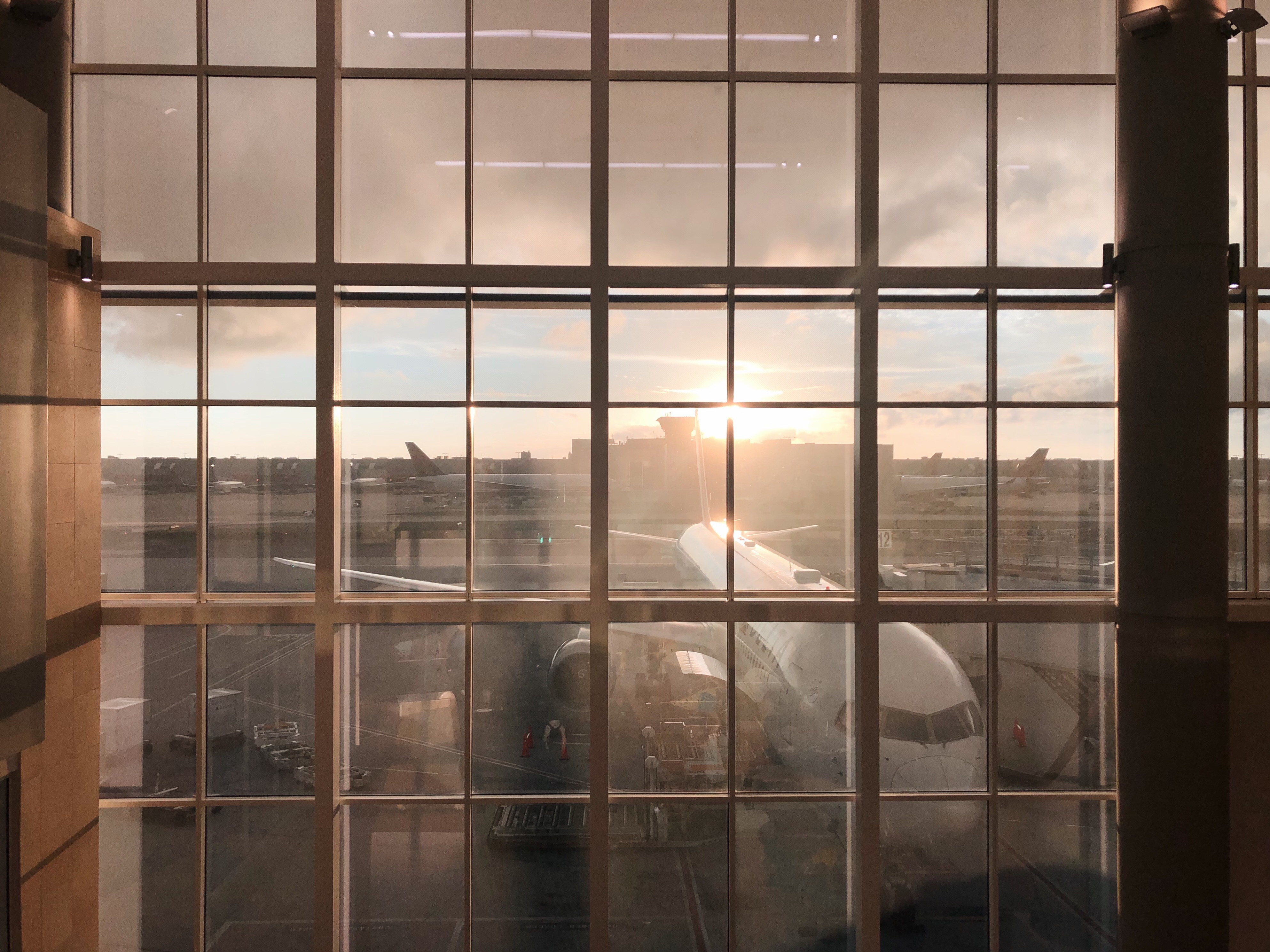
I’m sitting in my home office, staring down at my little, blue notebook full of OER19 scribbles, and a bit in disbelief that the two-day conference has already come and gone. Last week I had the pleasure of returning to OER for the second time to participate in conversations surrounding this year’s theme: Recentering Open. I was also there to help represent Reclaim Hosting with Jim and Meredith, and I will speak more about that in a later blog post, as I really want to take the time now to spell out the various moments, phrases, images, and discussions that have continued to resonate with me over the last few days.

Naturally, I will start at the beginning. I really, really admired the way that the Co-Chairs, ALT Team, and NUI Galway framed the opening of the conference. Laura Czerniewicz told us to “…think beyond the easy optimism of open education,” which I thought was wildly refreshing. A representative from NUI Galway spoke about campus and conference values and pointed specifically to Respect, Expertise, Accessibility, and Sustainability. I was just recently nudged to include a Code of Conduct on the Domains 19 website, so having these values reiterated first thing at OER19 was a great way of tying into a personal lesson of mine. Finally, we were encouraged to step beyond our normal cohort of peers and attend sessions that we might not have considered otherwise. (Spoiler alert: I did this, and it paid off.)

My slightly disorganized thoughts/notes from Kate Bowles’ Keynote, A Quilt of Stars: Time, Work and Open Pedagogy:
- The expanding university means we must constantly perform a forensic analysis of the ‘closed university’.
- Who writes the resources, and who receives them?
- OER is currently a northern hemisphere movement- though efforts like Virtually Connecting are helping
- I need to read The Ladybird Book of the Night Sky
- The expanding university ‘experts’ communicate using Trade Data— “we are ‘ripe for growth'”
- Uses trends and charts, which doesn’t capture all open practices
- Open practice without Ethic of Care becomes an unfair absorption of time
- Optimism is a discipline, not an emotion.

Feeling charged up from the keynote lecture, I attended the Amaz-Zine workshop hosted by Amy Burvall and Bryan Mathers on the communicative power of creating and sharing zines. After seeing a few examples, we learned how to fold a single piece of paper into a little 8-page booklet that would become our zine, and then began creating on the spot. You can see mine below: (P.S. We were also taught that zine art is a no judgment zone for artistic capabilities so I’ll let that extend to my readership as well, LOL.)

Later that afternoon I listened to Claire McAvinia speak about learning spaces in 2019, and her reflection on design and the use of physical learning spaces impacting how we learn. Does a more open learning space translate into more open practices?

She referenced this image from the 14th century by Laurentius de Voltolina and argued that our learning spaces still look very similar today compared to the above portrayal. Claire shared that this says something about the way that we’re teaching, and that we need to leave the age of ‘information poverty‘, in which the teacher has all of the information and the students have to ask for it.
While I no longer find myself personally working and learning in a classroom on a daily basis, I am always strategizing with instructional designers and campus administrators that want to think through learning spaces on their own campuses for peer-to-peer tutoring. I found the presentation fascinating for that reason.
Bonnie Stewart, Lawrie Phipps, and Dave Cormier spoke about a pro-social / pro-societal web in which they questioned the ‘pervasive surveillance and predatory practices’ that are normalized during our interactions with technology. They focused on the question, “Open for whom?” and ended with the argument that open is not the same as inclusion.
Lastly, I really enjoyed hearing from the folks at CUNY about their OER initiatives with Commons in a Box and Manifold. There was so much packed into the hour-long presentation, but my notes are as follows:
- ZTC (Zero Textbook Cost) doesn’t automatically translate to OER, but it is a step in the right direction
- Faculty have ‘Platform Fatigue’– being aware of this is important when extracting and unbundling data to create open experiences
- Labor Problems (with Adjuncts, specifically): technologists invest time into adjunct training when there is no guarantee of contract renewal– this ties in with Bowles’ Ethic of Care
- CUNY’s Commons in a Box OpenLab install sits on openlab.citytech.cuny.edu
- Ability to clone Faculty Courses within the install for others to use- similar to cloning site templates/SPLOTs
- Easily view Courses, Projects, Clubs, & Portfolios- a great solution potentially for schools wanting a Community Site
- Manifold is an open publishing platform for the web that allows the publication of digital books
- An alternative to Pressbooks that isn’t dependent on the WordPress stack
- Stronger annotation tools
- Examples: manifold.umn.edu; open.uapress.arizona.edu

To say the least, I left OER19 feeling inspired by the conversations and new perspectives I was able to listen to and be apart of last week. I am very appreciative of the key values and themes that the OER19 Team made so readily apparent in every aspect of those two days, and it is my hope to extend them through Domains19 and beyond. Thanks for an awesome conference, OER19. I can’t wait for next year!




Pingback: OER19 Therapy | bavatuesdays